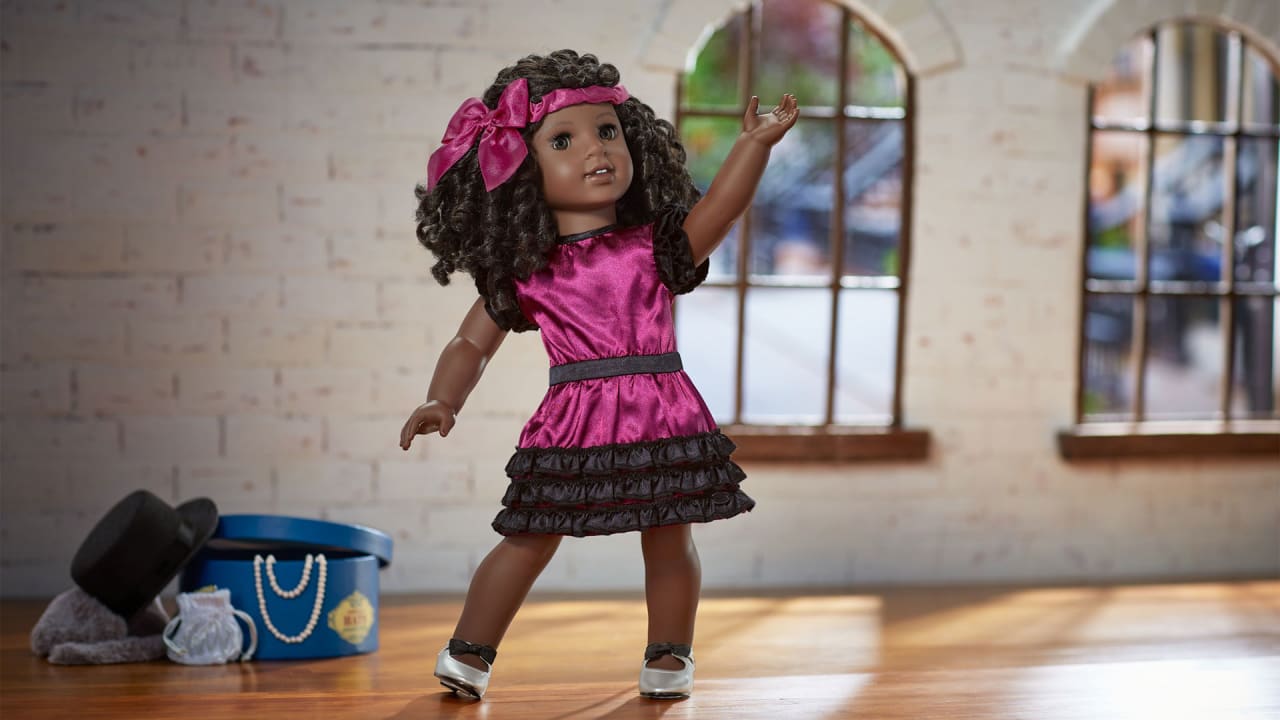
American Girl is going through a Harlem Renaissance.
The doll company’s historical lineup of characters recently introduced Claudie Wells, a young girl finding her own creative voice during one of the peak times for Black artists in America. As is custom with American Girl dolls, Claudie comes with a book detailing her story. And New York Times bestselling author Brit Bennett (The Mothers, The Vanishing Half) was tasked with bringing Claudie to life on the page.
“We came together to talk about a period of time that we hadn’t yet tackled,” Cygielman says. “The Harlem Renaissance was such an interesting moment in history.”
The American Girl historical dolls were created with the intent of educating children about different times in history. Previous dolls explored the Great Depression, child labor, animal abuse, and one of the more formidable narratives: slavery.
Addy Walker, American Girl’s first Black doll, was released in 1993 and authored by Connie Porter. Addy’s story was set in the Civil War era and focused on her escape from slavery by running away to the North. Despite the importance of her story, Addy has understandably been a source of controversy for years—namely, that buying a “slave doll” perpetuated the idea of Black people being owned.
The complexity of Addy and what she means to Black girls has been top of mind for Bennett, who wrote an essay for the Paris Review on the legacy of Addy and Black dolls.
“I grew up with Addy who was important to me as a kid. I think that book might have been the first book I read about the history of slavery,” Bennett says. “I’ve always thought of Claudie as following the legacy of the character that I loved. I was able to speak to the author of the Addy books, Connie Porter, and that sealed the deal for me. I wanted to write a book about Black history and Black childhood that hopefully would do for the next generation what the Addy books did for me.”
“Those who grew up with us are now parents themselves and they’re trying to pass on that love for the brand on to their children,” Cygielman says.
And, in turn, American Girl aims to push its brand among its fanbase beyond dolls and books.
As part of the Claudie’s launch, American Girl is donating $100,000 to support Harlem School of the Arts Prep, a pre-professional program aimed at providing advanced arts training to students ages 12-18. To date, American Girl has donated more than $130 million to various charities and initiatives targeting children and families in need.
“We’re always focused on the continual progress of girls and women. And we’re not simply reflecting culture, we’re earning lasting value with the fans,” Cygielman says. “There’s one meme I love from a fan that says ‘There’s nothing the world won’t throw at an American Girl doll and there’s nothing that she can’t do’ and to me that says it all.”

